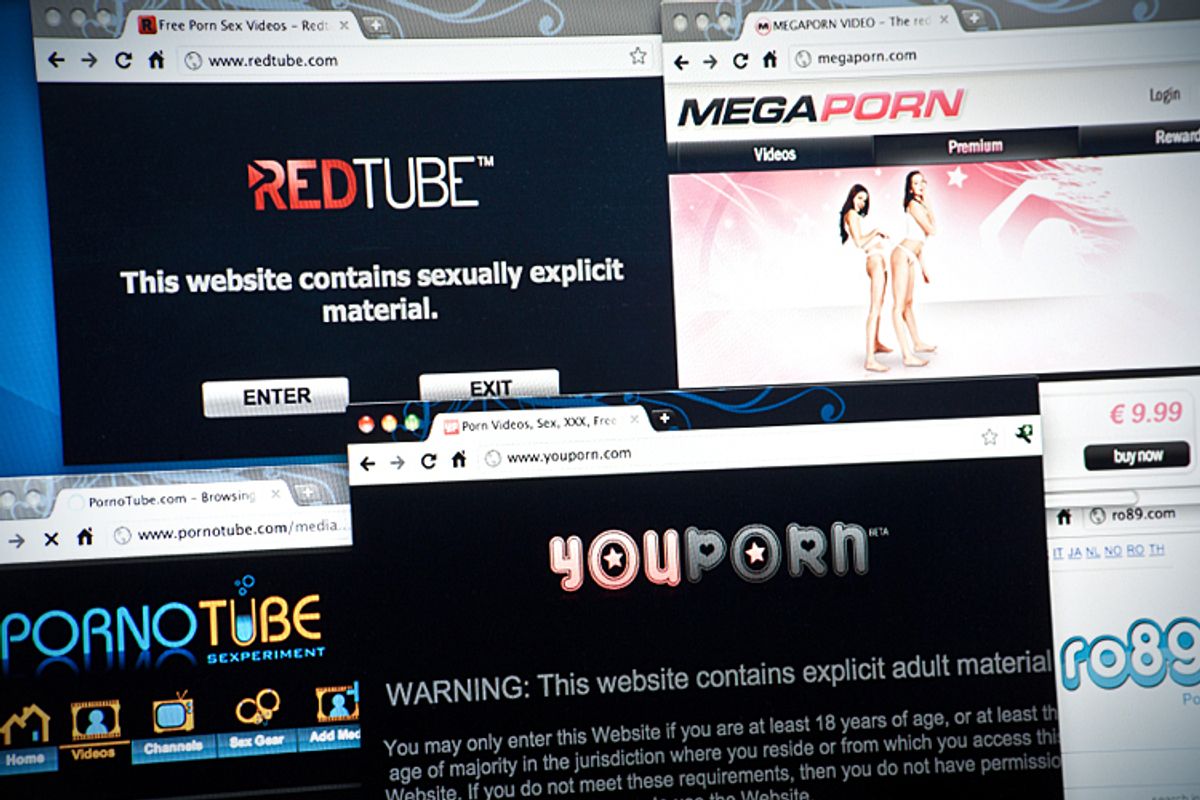Today a press release from Morality in Media celebrating a supposed "anti-porn initiative" landed in my inbox -- and you can imagine my shock at realizing that I actually agree with the conservative, faith-based organization on something. Which is to say that I too believe that it was appropriate for Secretary of Defense Chuck Hagel to announce last week, following an outrageously high estimate of sexual assault within the armed forces, that all military workplaces would be searched for inappropriate sexual material that might contribute to a hostile work environment.
Enforcing basic sexual boundaries in the workplace is one thing. Blaming sexual assault on pornography, which is what the MIM press release goes on to do, is another. It reads, "Research overwhelmingly demonstrates a link between pornography consumption and increased sexual violence." What that sentence suggests is that there is a demonstrated link between porn-watching and an increase in perpetration of sexual violence -- and that is patently untrue. The availability of Internet porn has been shown to be associated with a decrease in sex crimes.
Now, that isn't to say that porn-viewing necessarily causes a decrease in real-world sexual violence; some have argued as much, but I haven't seen evidence that convincingly goes beyond correlation to indicate causation. It's simply to say that there is no evidence that pornography consumption causes, or is even associated with, an increase in cases of sexual violence. Period. End of sentence.
As Ronald Weitzer writes in the journal Violence Against Women, "A comprehensive literature review concluded that research has not demonstrated a link between media images -- of any kind -- and audience behavior." That's why we're still having contentious debates about media censorship and the influence of violent video games and the like. He adds that "at best, media effects are 'weak and affect only a small percentage of viewers'" and that "what matters most is whether a person is socially predisposed to act, or 'primed,' in a certain way -- with preexisting views reinforced by or resonating with new stimuli."
A more accurate statement would be that some studies have found a link -- again, that's correlation, not causation -- between porn-viewing and acceptance of the "rape myth" (that sexual assault victims were asking for it, deserved it or wanted it). If we're going to bother talking about "science" and "evidence," these are crucial distinctions.
And that isn't even to dive down the rabbit hole of discussing the issues with those studies in question -- from non-representative samples to unnatural laboratory environments to wildly differing definitions of pornography. As Joseph Slade, author of “Pornography and Sexual Representation: A Reference Guide,” told me in an interview two years ago, "No responsible academic researcher claims that evidence supports pornography’s causing hostility or violence, principally because of the number of variables involved in constructing studies, the divergent definitions of pornography, and the sometimes unconscious biases of those who look for effects."
This is a topic that has been studied for decades now without conclusive results. That isn't to say that researchers shouldn't continue to study the issue or find better ways to measure these relationships. It's simply to say that it's untrue that "research overwhelmingly demonstrates a link between pornography consumption and increased sexual violence." So, let's set the record straight. And if the military banishes porn from the workplace, let's do it for the right reasons.



Shares